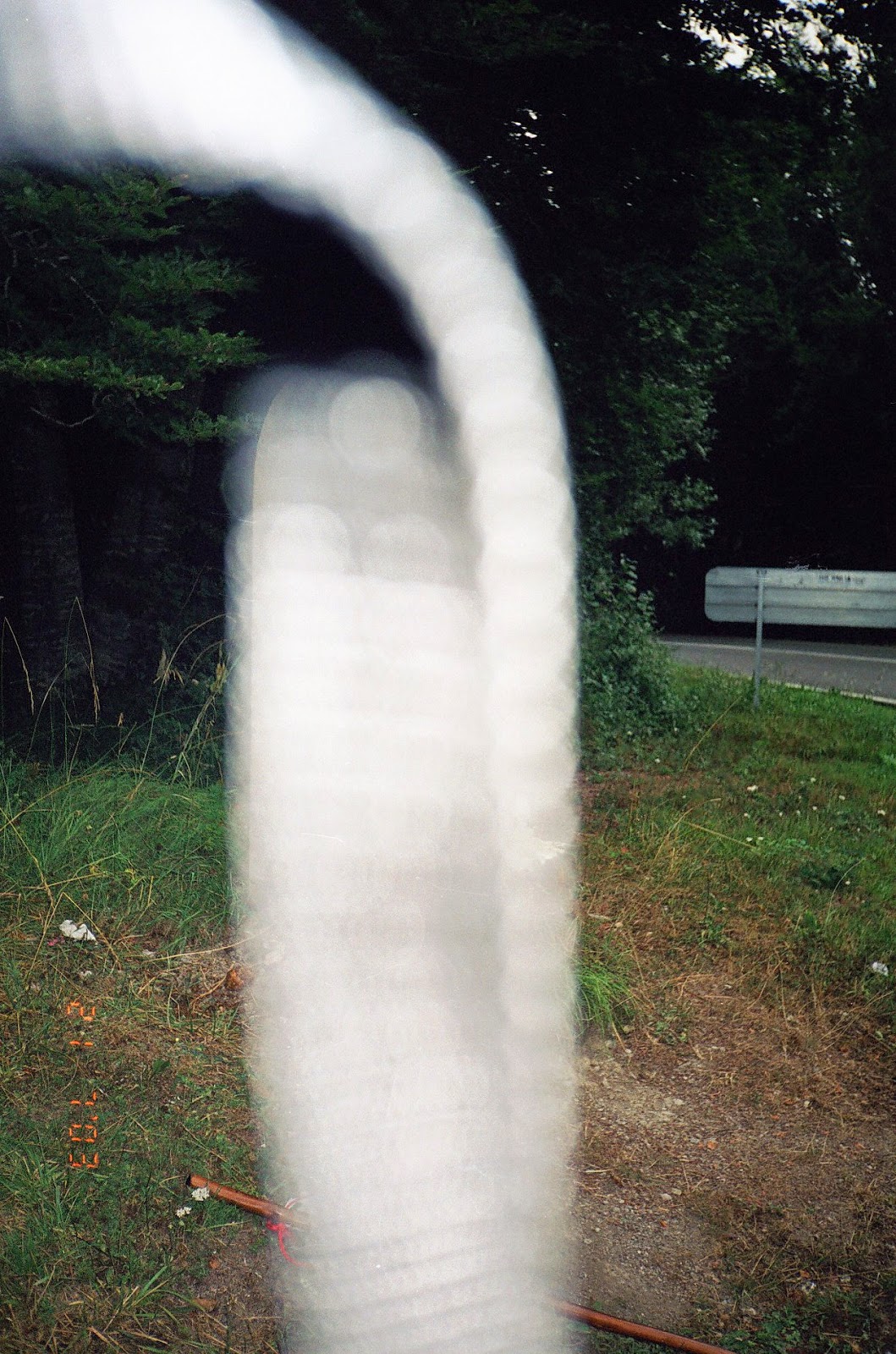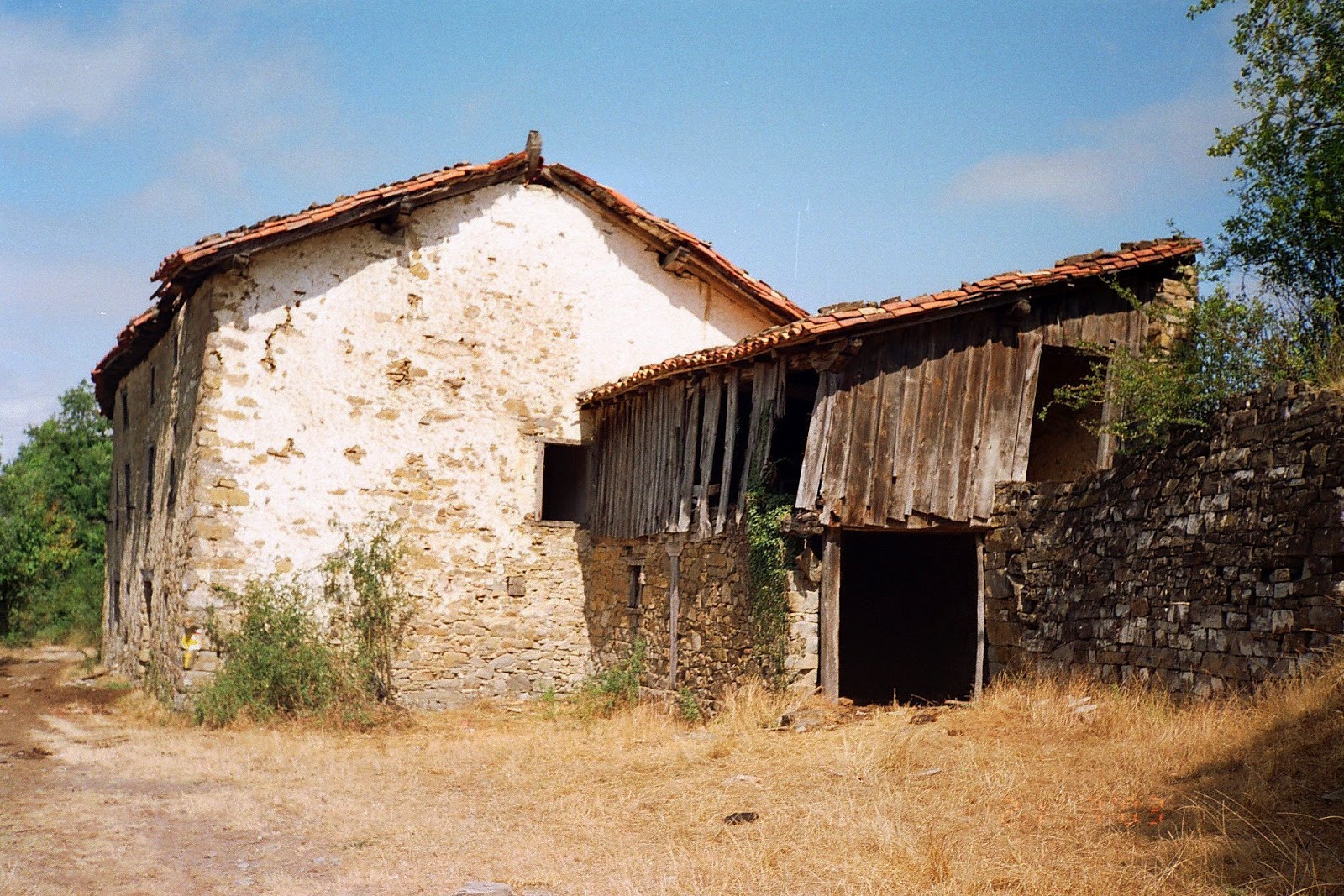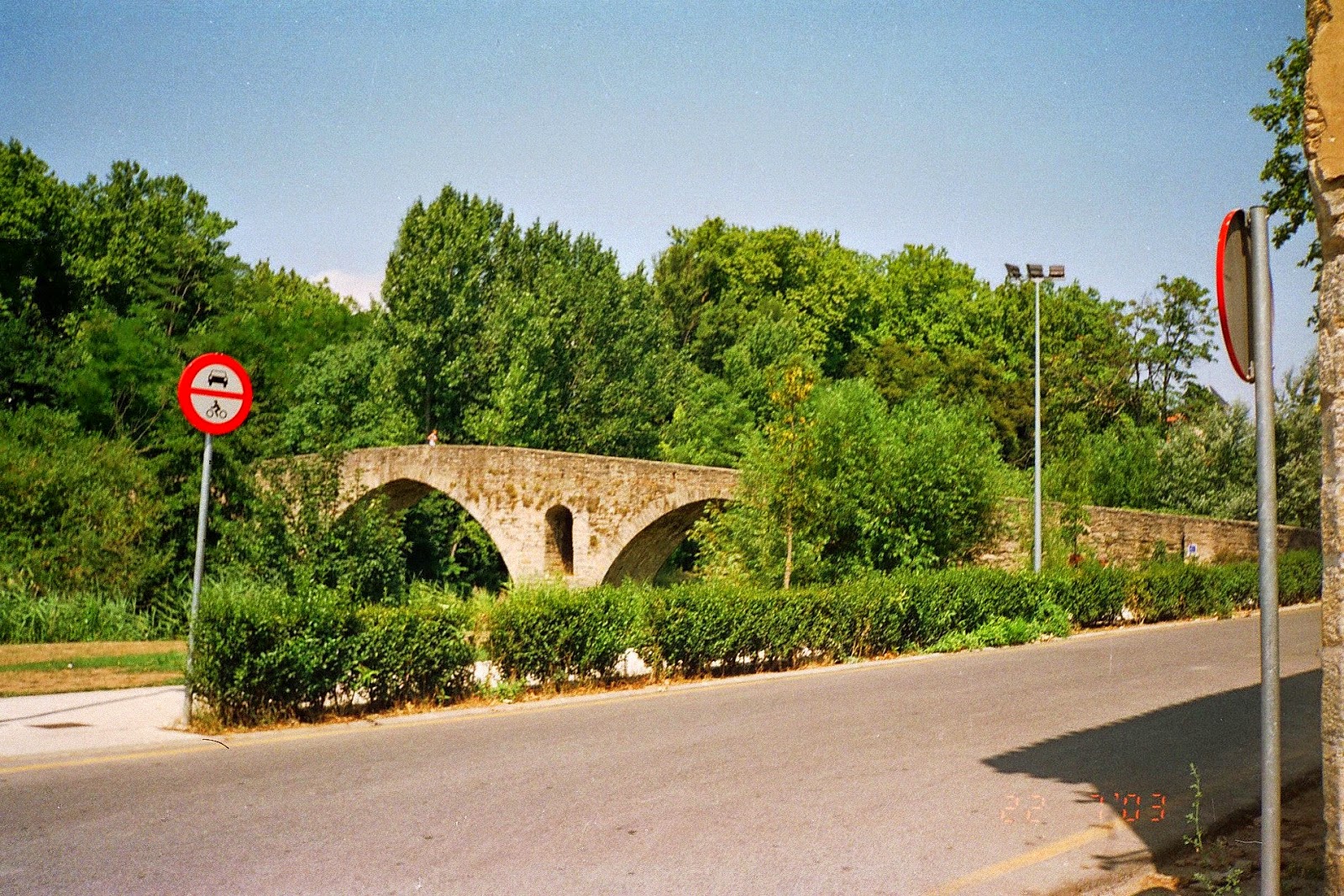Way of Saint James, first stage: from Roncesvalles to Larrasoaña
You're not quite sure what time it is.
Restless, not yet awake but not asleep either, you've been tossing and turning in the bunk for a while. Gradually your thoughts become more elaborate and you feel like you're waking up to a nightmare: alone, far from home, among strangers, in conditions far from civilized; and, worst of all, the journey has just begun and youalready feel mentally exhausted.
You search among the sheets and find the alarm clock. It's a few minutes before 5 in the morning, and the alarm was set for 5:30. You're relieved; for a moment you feared you had overslept on the first day. More than oversleeping, something that has never happened to you before, you're worried that the alarm clock might have failed. But no; in this chaotic world, everything is where it should be.
Since it makes no sense to stay awake any longer on a mattress that is not comfortable for you, you decide to set off. You dress in the most rudimentary way before dragging your backpack - all your belongings - out of the barracks. There, without making noise and without disturbing the rest of the occupants who are still sleeping, you organize your gear and lace up your boots. You've never worn hiking boots before; the lacing seems quite a challenge, but it turns out to be easier than you expected. And if it's too loose, or too tight, it can always be adjusted on the go.
Outside it hasn't dawned yet, there's barely enough light to consult the guide with the route you decide to hang around your neck, but there is enough to see the indications of the path. There are indicators in the form of ceramic tiles; others are simple yellow arrows painted on walls or rocks. Roncesvalles is the starting point for many pilgrims, so everything is well marked.
You approach a street lamp to read the guide for today's journey. As you remember, the first village is close, about 3 kilometers away. In your daily life, up to this point, walking three kilometers was a considerable distance, but on a 24 km journey it seems a reasonable distance.
You quickly recognize the path. It has nothing special; nobody would say that a millennial route runs along a path that does not differ at all from those in your town. It's early, you don't see anyone yet. You don't hear birds yet either; only the sound of your staff - that almost two-meter stick you bought from the man who was registering the pilgrims - breaks the silence of the early morning; a cool and clear dawn.
The path, flat and comfortable, goes into a dense and thick grove, and everything becomes even darker. When you come out, you already see the lights of Burguete, and a sky that is getting clearer. Entering the town you see a school and you imagine what your life could have been like living in such an environment. Just two months ago you were still going to school, so you imagine making that same three-kilometer journey every day, to go to school or get on the school bus, and you think it wouldn't be out of the ordinary. A daily routine of 6 kilometers is enough to be reasonably fit and, what seems more important to you, to organize your thoughts a couple of times a day. "Organizing your thoughts" sounds like a euphemism; perhaps saying "talking to yourself" -remember Machado's verse: "I converse with the man who always goes with me"- would be more accurate.
Right in the middle of the town, which like many mountain towns seems like a set of houses distributed on both sides of the road, you find a small square with stone benches and, most importantly, a fountain. Under normal conditions you are a thirsty person, you never miss a chance to drink water if you get the chance, so one of your obsessions on the way will be to always provide yourself with water. You decide to sit down and rest a bit, and to have some cookies for breakfast that you had prepared and didn't feel like eating in Roncesvalles because of the morning nerves.
The stone is cold, no cars pass on the road, and you are anxious to think that if after three kilometers you need to sit and rest, maybe you are not prepared for everything that lies ahead; calm down, a recurring thought comes to cheer you up saying: - Little by little, step by step, if you get tired you stop, rest, and then continue. Sooner or later you will arrive, it is not that difficult. And encouraged by this perspective, you decide to carry the weight of your backpack and continue to the next town, but not before refilling your canteen.
The next town is at a similar distance, just over 3 kilometers, along a path that remains flat and pleasant. You cross cultivated fields that in the early morning, bathed by the morning dew, give off a peculiar scent of fertilizer; it's not pleasant to you, but it's so faint that it doesn't seem unpleasant either. You see huge bales of manure, or fertilizer, or whatever it is, as you are unfamiliar with most agricultural tasks that you have not experienced firsthand, wrapped in plastic, in the middle of the fields, and this catches your attention. You had never paid attention to the crop fields; but, of course, now what you have in abundance is precisely attention and time as you walk.
You arrive at Espinal, another mountain village, and decide to rest again by the fountain. A little, at least. While you're there, pilgrims arrive; some you recognize: they were dining with you in Roncesvalles. Even the couple who sat next to you at dinner, they don't take long to pass and stop for a while. They didn't leave as early as you, but they have a faster pace than yours. It's not something that worries you, the important thing is to arrive and you are just starting to walk.
You carry a flask of liquor with you. It's made by your grandfather - mine, to be exact - and more than a liquor it's wine macerated with walnuts, spices, sugar, and good doses of schnapps and anise. You never paid too much attention to the recipe, but yes to the product; and you're not the only one: this brew has always elicited praise. Asking for the recipe, delving into its secrets, would be like desecrating the myth: the fact of not knowing its composition makes you respect and admire it more.
You offer a drink to a couple of French pilgrims who stop to greet. The woman kindly declines and the husband drinks a sip out of commitment; you observe a known reaction on his face: the praise of the brew is sincere.
As soon as you stop hearing the staff of the last pilgrim moving away, to start the march at a prudent distance - you don't like following anyone's pace -, you load your luggage again and continue the march. The next town is about 5 kilometers away, but in the guide there is a place indicated at a short distance: "alto de Mezquiriz", just after crossing the road again. As its own name indicates, it's a high place; perhaps because of the effort to climb - not too much, since you're almost at the same height, or because of the little desire you have to walk, you take a break again. You decide to take a picture of the place, but the result will not be very brilliant.
 |
| Foto malograda junto a la carretera |
The fact of being on a high place has its advantages; the most important for you at this moment is that the next stretch is downhill. Little by little the road is filling up with pilgrims; when you get to Viscarret a few have already passed you. This town represents for you a double-edged milestone: on one hand it's almost halfway, so you think you have done half the work; on the other hand, it's almost 3 kms closer to the beginning than to the end, so the feeling of being close to the end will turn towards you in the form of fatigue at the end of the day.
Linzoáin, the last town before the "Roland's Pass", is not even on the roadside, so it gives the impression of being a poorly organized cluster of houses. It is in this stretch, leaving the town, before entering a dense stretch of forest, where a larger group overtakes you. At the head seems to be the older man you saw washing his hands yesterday; he could well be a priest in mountain clothes traveling with a group from his parish. There is something about him that inspires trust; he already inspired you the first time you saw him in Roncesvalles, among city people who take the Camino more as a weekend adventure than as a pilgrimage.
 |
| Disparo accidental en la espesura del bosque |
Roland's Pass does not impress you; you have to use a lot, but a lot of imagination to see in the marks of the stone the passage of the mythical character. And you, tired from the journey and far from home, are not up for such subtleties. You leave the boulder behind and leave the wooded area, reaching a building marked on the map as "Venta del Puerto". Now it's an old, closed, unused building, but as an avid reader who has savored Don Quixote, you can well imagine what the inn would have been like in the 16th century, with pilgrims as the main clientele.
 |
| Venta del Puerto, cerca de Zubiri |
Encouraged by the short distance that separates you from Zubiri, and by the flatness of a path that has left the harshness of the forest behind, you keep walking. The name Zubiri is familiar to you; your old tutor told you that there is a hostel, and a small bar where they serve artisan cider. Once you arrive in the town, you have to cross the stone bridge to get to the only bar there is: there's no doubt, it has to be here.
In addition to being a bar, it serves as a small grocery store, although by carefully observing the shelves you realize that it is more focused on pilgrims than on the town's own inhabitants: cookies, canned food, water... more domestic supplies like oil, salt, legumes or washing detergent are noticeably absent - or, simply, you don't see them-. Midday is approaching and this is also noticeable in the attendance at each stop; however, you are still lucky: you can sit at a table to drink a craft cider that bears little resemblance to the bottled cider you have drunk until now.
You decide to take the bottle as a souvenir; a common mistake among 'first-time' pilgrims, carrying useless souvenirs during the journey. Before leaving, you are tempted to stay at the local hostel, but you hear a nearby pilgrim say that it is already full, and they will try their luck in Larrasoaña. That's the thing about the first stretch of the road - not only the first one, actually-, only the first to arrive find lodging. Also, consider another thing: shortening due to fatigue, even if it's only a few kilometers the first stage can be a terrible incentive for the successive stages. So you load up your things again, cross the bridge again and move on, only in this way can you momentarily silence that inner voice that sadistically repeats to you: "you won't make it, you'll never reach the end".
Passing by the Magnesitas Navarras quarry offers you a spectacle of industry and civilization that calms you. Nature is a hostile environment and seeing some civilization calms and soothes you; now that you walk alone you feel that the border between Rome -civilization, law, man's dominion over nature- and the barbarians is closer than you thought.
 |
| Magnesitas Navarras, desde el Camino |
Walking and walking, on a narrow path that descends down the side of a hill to the vicinity of Larrasoaña, you think you see a familiar face, who overtakes you: a male, you estimate him to be about 19 years old and he is alone, at a much more agile pace than yours; he looks like someone from Madrid with whom you lived 3 years ago on an English course, in Ireland, but you don't remember his name, so before bothering him with any excuse to check if you are right, you decide to pass and move on thinking that there will be another opportunity to find out. Of course, there wasn't, but it doesn't really matter to you.
Let me tell you something that you will discover later on your own: you are away from home, without anyone's supervision, among strangers, in lands you do not know; it will not be the first or the last time that you think you recognize a face, a voice or even a familiar car. But there is no such thing; they are just mirages.
You arrive in Larrasoaña, crossing a stone bridge similar to the one in Zubiri. There you discover Santiago,quite an institution who, in addition to being a host and mayor, has walked the path several times, earning a place even in the pilgrim's guides. Beneath the myth, which you don't understand - doing the path once... okay, but twice? three times? incomprehensible to you who are just starting and are eager to go home - you see an overwhelmed man, lacking all organization, in an overcrowded hostel. He can't tell you whether you will have a place or not, but he encourages you to leave your things, take a shower and go eat while he tries - lose all hope, he won't succeed - to organize the reigning chaos.
The group led by that older man who inspires confidence, the same one who overtook you halfway, is settled in a room full of bunk beds and offers to keep your things while you shower. It's not that showering is the panacea; everything hurts and a shower won't fix it, but it is a vestige of - minimal - civilization on the path.
You join the group at mealtime, in the only restaurant in the village. They serve a ranch dish: beef stew with potatoes, at the highest 'for pilgrims' price you will see on the path. Besides, you will have to wait almost an hour until there is room. Needless to say, it's the only place in the village where food is served.
You are unhappy with the food, the price, and the place; only the company cheers you up a little. The older man is from Irún, his name is Santiago (like the Apostle) and he has walked the path several times. The group accompanying him has nothing to do with him, in fact, they have been adding to him forming a well-matched and compact group to which you now, without formalities, are honored to belong.
However, the worst thing about the place is neither the food nor the price. After finishing eating, the owner sits at your table, rants about some pilgrims who have left outraged by the price and the food and, what you find most repugnant, you have to listen to how he affirms that what he does is a favor to the pilgrims; and that he is so good that once, in winter, with the restaurant closed, he invited the only pilgrim in the town to eat at his house and did not charge him anything... You look at Santiago, who listens patiently, but you discover that a slight smirk of irony has been drawn on him listening to the restaurant owner, and your anger passes.
After eating, the other Santiago -you are tempted to call him the Minor to distinguish him from the group leader, but it seems a bit blasphemous to you-, still has not put order in the reigning chaos and cannot give you lodging. You don't mind, in fact, the atmosphere there is so chaotic that you wouldn't mind being left without a place. The group decides to go swimming in the river, next to the bridge, and you accompany them. The swimsuit you carry in your backpack will not be dead weight, after all.
Patricia, a woman from Pamplona on the cusp of her thirties, is a whirlwind of intelligence and extroversion. Her allure is undeniable, but it's her charm and charisma that truly set her apart. At that moment, she's trying to convince a small boy playing by the river to soak Carmen, Alex's sister, with his bucket. These two siblings, from La Rioja, have recently finished their teaching degrees; you don't ask, that mix of discretion and lack of interest protects you from prying into others' affairs. The water in the rivers at this altitude, even in July, is freezing, and the Arga is no exception. You take a couple of dips, more than anything to not appear cowardly in front of the group, harboring the secret hope that the cold will alleviate the discomfort that the road has left in your weary body. The hope proves futile and only the cordiality that prevails in the group allows you to forget the day's fatigue.
Before you know it, it's time for dinner. You go with the group to the only restaurant in the village, walking down the main street of Larrasoaña; a long street flanked by houses and mansions, almost all old, where civilized people live.
Back at the hostel, Santiago -the mayor-, in his office, tells you that yes, he will find you accommodation somewhere. On the way to the office to pay for the accommodation -about 5 €- you pass through corridors infested with pilgrims trying to sleep, almost stacked, in their sleeping bags. Even under the stairs there are three bundles that we must jump over to avoid stepping on. You are thinking that perhaps it would be better not to find accommodation in the hostel,and that sleeping on the street, next to the river, sounds better than doing it in that hostel.
When it's time to pay, a Japanese pilgrim accompanies you, with scant knowledge of Spanish. Now that only you remain for Santiago's chaotic day to end, he becomes jovial and shows you a small plastic cat, a Japanese trinket that he has in his office. The Japanese woman recognizes it immediately by its name and, in what seems to you a self-immolation to the stereotype, makes a small origami figure, a bird. As a result of this small gesture, you can hear a story of a Japanese pilgrim who, upon arriving, exhausted, at the hostel, the first thing she did was apologize for coming to our country without speaking the language. Needless to say, such a polite, formal, and unnecessary apology moved the narrator in such a way that he now feels sympathy for every Japanese pilgrim he meets, in whom he sees the expression of a polite and respectful people.
Excited by the gift, Santiago says goodbye to you and you find yourself on the street, with your backpack, having paid the registration and without a place in the hostel. Needless to say, it is an oversight due to chaos and poor organization, but you decide to take advantage of it and go to sleep by the river; relieved, deep down, not to have to sleep crammed next to strangers under a staircase cupboard.
Once you arrive back at the river, where you spent the afternoon, you have no trouble finding a dry and flat place to stretch out your sleeping bag. With your backpack nearby and the staff by your side, you set the alarm as close as possible to the headboard and hope that sleep will overcome you, with the sound of the water in the background, enjoying a very scarce luxury on the road: solitude.

Comentarios
Publicar un comentario